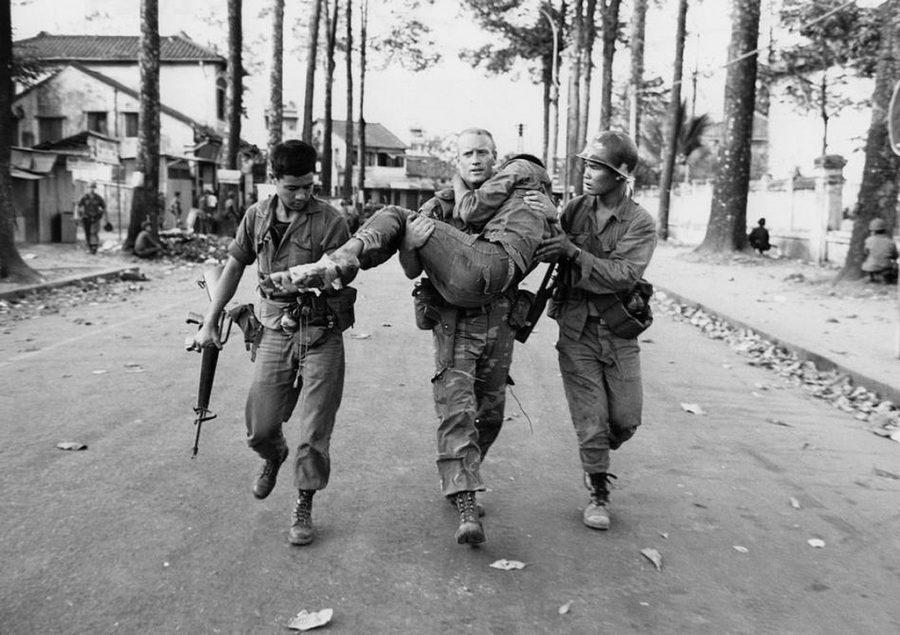This Day In History: January 30th
Soldiers During the Tet Offensive
January 25, 2017
On January 30th, 1968, Vietnam was celebrating Tết, the Vietnamese New Year. This is a shortened form of Tết Nguyên Đán, which translates to “The Feast of the Morning of the First Day.” This day is a celebration of Vietnamese culture, and it signified a grace period for the Americans and Vietnamese. However, the leader of North Vietnam, Ho Chi Minh, had other plans. Over the course of months, he created the best coordinated and largest attack on South Vietnam, focusing on strongholds for American and Southern Vietnamese forces.
Ho Chi Minh and his officers organized that supplies and weapons alike would slowly trickle into South Vietnam over many months, as to not raise suspicion from the American soldiers stationed there. During the Tet celebration, underneath baskets of food, were hidden ballistics in order to launch the attack.
The Battle of Huế began alongside this assault. Huế was a pivotal city for the US due to it being a base for American supply boats, as well as providing access to the Perfume River, which divided it between North and South. Due to its value and proximity to the DMZ by about 31 miles, one would expect Huế to be heavily fortified and fit to survive any communist attack, but this was not the case. While the communist forces lost anywhere between 2,400 to 8,000 troops and the Allied forces lost 668 with 3,707 wounded, the Tết Offensive shifted the way the public viewed the war.
It is no doubt that the Tết Offensive was a turning point in the war to show America that the Vietnamese were willing to go all the way to protect their communist government. American soldiers were sent to fight and die to keep the political ideology of communism from spreading, which differed from the World War II sentiment that soldiers kept close, which was to defend America’s freedoms after the attack on Pearl Harbor and to attack Naziism. Going into the Vietnam war, soldiers expected to have a heroic and patriotic experience like their fathers and male role models had during WWII. However, they soon realized that their government’s agenda was nowhere near as honorable as the WWII agenda. Thus, Anti-War movements broke out even before the Tết Offensive occurred. This assault only aided to the anger of the public, eventually leading to America backing out of Vietnam on August 15, 1973.


